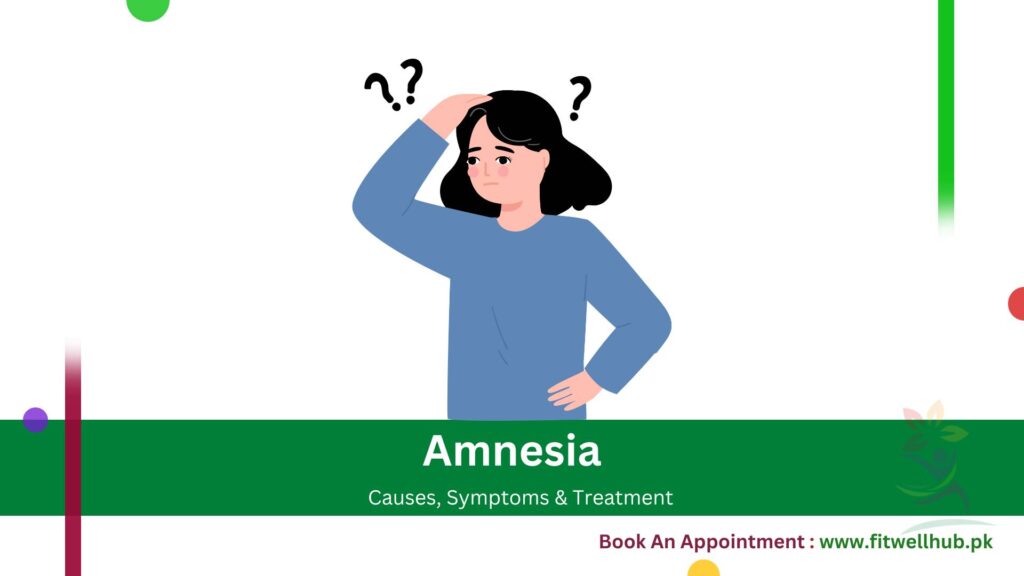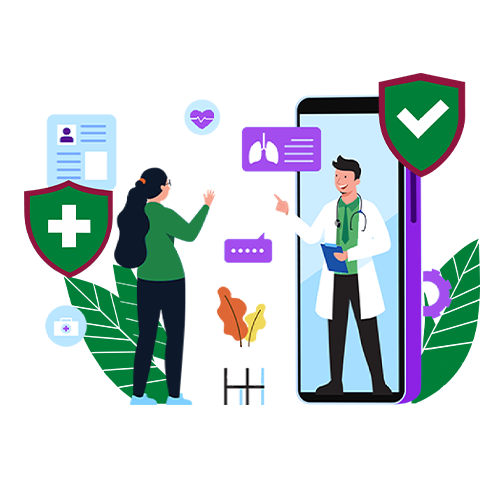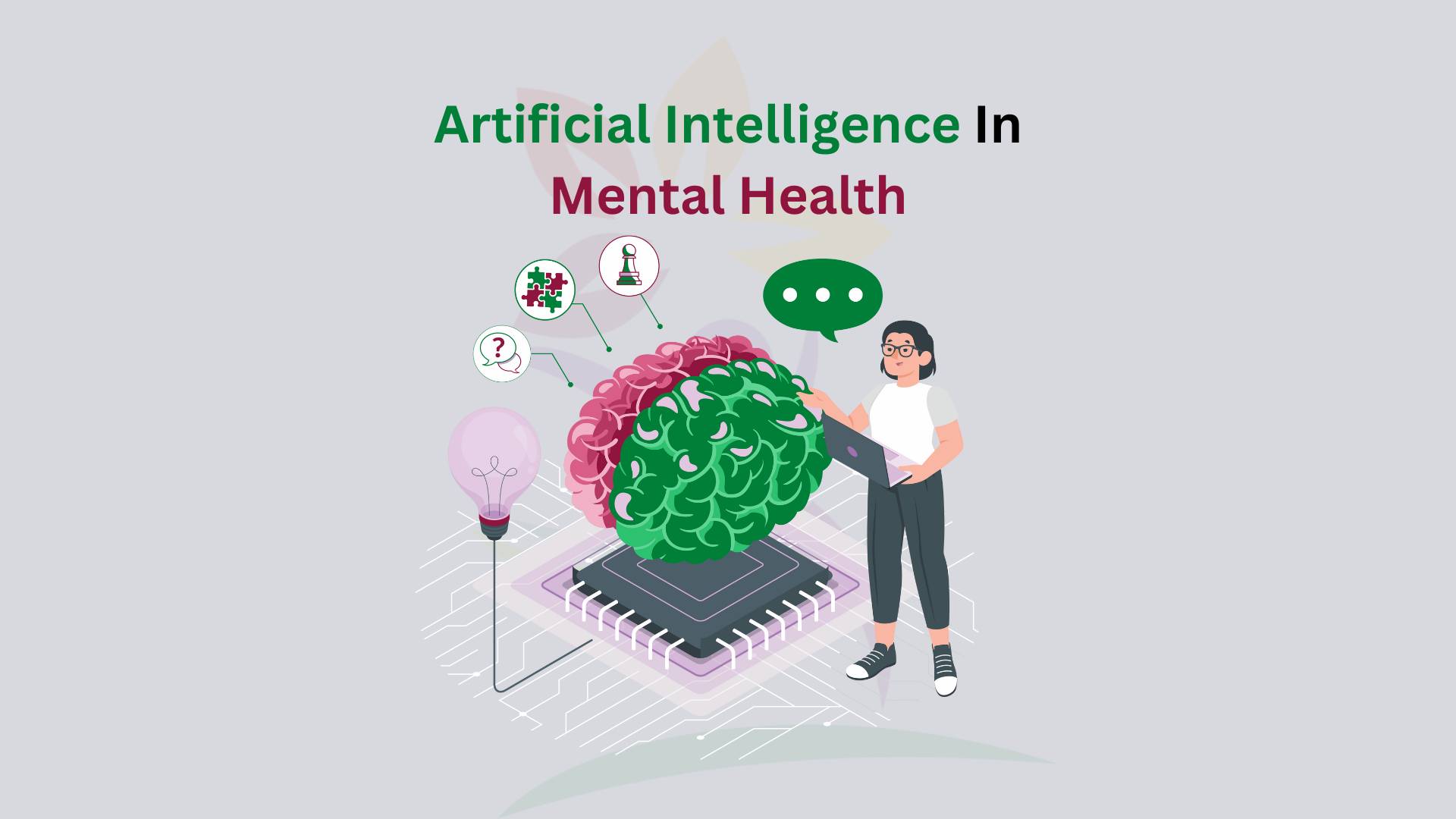Amnesia can be characterized as an illness of memory, in which a person cannot remember the details of an event or cannot make new memories. Amnesia, which presents distinct symptoms, can result from various causes of amnesia, including traumatic brain injury, infections, severe psychological stress, substance abuse, or neurological diseases like Alzheimer’s.
Quick Links
ToggleDiagnosing amnesia typically involves evaluating the patient’s statements, medical history, neuroimaging studies (MRI, CT), and psychological tests. Addressing the symptoms of amnesia focuses on treating the underlying cause, cognitive rehabilitation, and supportive measures to enhance the patient’s quality of life.
Types
Amnesia is generally subdivided into anterograde amnesia, where people have difficulties forming new memories after the disease, and reverse amnesia, which includes the inability to recall any memories one made before the injury. On the other hand, transient global amnesia causes sudden bursts of memory loss, erasing the recent memories and leaving the rest whole.
Symptoms of amnesia
Amnesia presents itself through several symptoms, which affect day-to-day life and overall function. The degree and kinds of amnesia depend on the cause of the amnesic syndrome. Some of the common symptoms of this condition include:
1- Difficulty recalling past events
People with amnesia have a common situation where they cannot recall events that took place before they had the condition. This known as retrograde amnesia, affects the important milestones, historical events, and personal experiences, making it difficult for people to re-engage with their memories.
2- Problems forming new memories
Anterograde amnesia disables the ability to make new memories after the beginning of amnesia. People may have difficulty remembering recent interactions, learning new information, or keeping track of daily tasks, impacting their capability to work independently.
3- Confusion about time or place
Amnesia can cause disorientation about location and time. People having this symptom can have difficulty identifying their current location, become confused about their surroundings, or forget track of the date. These conditions will disturb the sense of orientation and their routine life.
4- Repetitive questioning or storytelling
Repeating stories or questions is one of the common symptoms of amnesia. It is because of an inability to remember recent information. People may tell the same anecdotes and ask the same questions again and again, not realizing that they have done so already. It may become frustrating for the person himself and their caretakers.
5- Inability to recognize familiar faces
In some cases, amnesia may disable the ability of an individual to recognize people once knew well. This condition may lead to trouble in remembering the faces and names of friends, colleagues, or even family members, affecting social interactions and personal relationships.
6- Difficulty remembering recent conversations
An individual with amnesia may find it difficult to remember recent interactions or conversations, as it damages their ability to recall important details, engage in meaningful dialogue, and follow discussions, affecting their social engagement and communication skills.
7- Disorientation in familiar settings
This symptom appears when people having amnesia feel difficulty understanding or navigating places they know well, resulting in feelings of confusion or anxiety in surroundings that should be recognizable and comfortable.
When to See a Doctor
Memory loss, disorientation about familiar surroundings, or difficulty in remembering events that happened recently, are symptoms of amnesia that anyone should take seriously and consult a doctor immediately. This condition tends to have better results if diagnosed and treated at an early stage.
Amnesia could be a symptom of a more complicated issue that needs to be medically treated. Early detection and intervention may result in better outcomes and assist in effectively managing the condition.
Our medical specialists at FitwellHub carry out normal diagnostics along with individual therapy for memory impairment, including amnesia. To schedule a consultation for treatment and understand your conditions, please go to the FitwellHub services and contact the doctors.
Causes of Amnesia
Amnesia may be caused by several factors such as neurological disorders, psychological trauma, substance abuse, brain injury, etc. Each symptom differently affects the memory and needs specified diagnosis and treatment approaches.
1- Traumatic Brain Injury
TBI (Traumatic brain injury) results from falls, concussions (head injury), or accidents, causing impairment in brain areas related to memory.
Neural pathways are disrupted in these conditions leading to both retrograde and anterograde amnesia, affecting the capability to make new memories or remember past events.
2- Neurological Disorders
Dementia such as Alzheimer’s disease or other abnormal brain changes, impacts the cognitive function of the brain like memory. These neurological disorders slowly damage the ability of the brain to keep and recall information, causing significant confusion and memory loss.
3- Infections
Infections such as meningitis or encephalitis impact the brain and can cause damage and inflammation in brain tissue, resulting in memory impairment. The extent of memory loss frequently depends on the severity of infections and affected brain areas.
5- Psychological Trauma
Serious psychological stress or trauma can lead to dissociative amnesia in which people forget specific periods or events related to trauma. This amnesia type is generally a coping mechanism used to protect a person from immense emotional distress.
6- Substance Abuse
Heavy substance use especially alcohol can cause cognitive decline and memory impairment. substance abuse for a long time can result in brain damage, impacting memory making and remembering, leading to long-term and short-term problems.
7- Stroke
A stroke arises, if the blood flow towards the brain part is interrupted. Stroke can damage the brain cells, causing amnesia if these damaged cells are involved in memory processing, disrupting the process of making new memories and remembering past events.
8- Brain Tumors
Brain tumors may invade or pressurize the brain regions that manage memory functions. The severity of cognitive decline and memory loss varies in different individuals based on the tumor’s size and location.
Risk Factors
Various risk factors can contribute to developing amnesia. A few of them are:
- Age: The risk factors of amnesia involve age, as older people have more chances of developing neurological disorders such as Alzheimer’s, causing memory loss.
- Head Injuries: Head injuries especially severe trauma can brutally affect the brain structure associated with memory.
- Neurological diseases: Neurological diseases such as Parkinson’s can also lead to memory impairment.
- Substance Abuse: Severe substance abuse damages brain function, increasing the chances of amnesia development.
- Prolonged Trauma or Stress: Prolonged trauma or stress may result in dissociative amnesia which blocks the distressing memories.
- Genetic predisposition: Genetic predisposition to diseases such as Alzheimer’s further increases the chances of memory problems.
- Brain-Related Infections: Brain-related infections like encephalitis can cause significant memory loss.
Complications
Amnesia can lead to many complications that may upset the social, working, or personal life aspects of a person. The impact of the complications is extensive not only damaging memory functions but overall health and daily functioning. Some of the complications are:
1- Difficulty maintaining relationships
The inability to remember key life events or make new memories may cause tension in relationships with friends and family. Amnesia patients may forget important life events, resulting in emotional distance, misunderstandings, and frustration in personal relationships, leading to social isolation, and further disrupting their emotional and mental health.
2- Challenges with work or daily tasks
Moreover, difficulties may arise in daily or work activities because of disability to recall recent tasks, responsibilities, and conversations, resulting in job loss and decreased productivity.
3- Increased dependency on others
With the progression of amnesia, people’s dependence on others increases for decision-making and daily care. This condition may be emotionally draining for caregivers and the patient himself, leading to burnout and stress.
4- Emotional distress or depression
Emotional complications including depression, frustration, and anxiety often lead to memory loss, especially when the person knows about their cognitive disorder.
5- Safety concerns
Safety issues also occur because amnesia patients can forget the method of doing basic activities such as driving, managing medications, or cooking causing accidents and other severe issues.
Prevention
While amnesia may not be eliminated, memory loss can be avoided to some extent by changing one’s lifestyle and adopting preventive methods. Some of the preventive measures are discussed below:
- Maintain a Healthy Lifestyle: Eating a balanced diet, exercising regularly, and getting enough sleep can improve brain function and reduce the risk of memory loss.
- Wear protective gear: Taking all the possible measures to ensure the safety and health of the brain such as wearing a helmet while riding a bicycle and doing sports activities or fastening the seat belt when driving helps avoid head trauma which can lead to amnesia.
- Manage Stress Effectively: Chronic stress negatively affects memory, so practicing relaxation techniques like meditation and deep breathing helps to reduce its impact on brain health.
- Keep the Brain Active: Engaging in mentally stimulating activities, such as puzzles, reading, or learning new skills, helps maintain cognitive function and delay memory decline.
- Avoid Excessive Alcohol/Substance Abuse: Limiting alcohol intake and avoiding drugs reduce the risk of damaging brain cells, which can lead to memory problems and amnesia.
- Manage Chronic Conditions: Conditions like hypertension, diabetes, and depression can impair memory, so managing these illnesses with proper care and medications supports brain health.
FitwellHub structured the Healthy Elite Lifestyle Program, to assist in avoiding memory loss and health issues related to memory by ensuring that prevention is on top of wellness and a more proactive approach toward health management. Explore our services and learn methods to keep a healthy brain at the FitwellHub Help page.
Diagnosis
Diagnosing amnesia includes a complete evaluation of the individual’s medical history, symptoms, and other possible conditions that cause memory loss.
Generally, the diagnostic process starts with a comprehensive conversation about the initial memory issues, related events like illness or trauma, and current medical treatments or lifestyle factors that disrupt the memory function.
A neurological or physical examination is done, often including cognitive tests to evaluate cognitive abilities and memory function. The doctor can also suggest several tests to detect potential amnesia causes like infections, brain damage, or other basic conditions.
Tests
| Diagnostic Test | Purpose |
|---|---|
| Cognitive Tests | Evaluates attention and problem-solving skills; includes tasks for assessing memory capabilities. |
| Brain Imaging (MRI/CT Scan) | Detects brain abnormalities (e.g., injuries, strokes, tumors) related to memory issues. |
| Psychiatric Evaluation | Identifies psychological issues (e.g., trauma, stress) affecting memory. |
| Blood Tests | Detects hormonal imbalances, deficiencies, or infections that impact memory function. |
| Electroencephalogram (EEG) | Measures brain activity to identify neurological issues like epilepsy affecting memory. |
At FitwellHub, state-of-the-art labs are available and provide multiple diagnostic tests that help identify amnesia symptoms or causes of cognitive decline and memory loss. For complete evaluations and cutting-edge technology, visit FitwellHub Lab.
Treatment
The treatment approach for amnesia is based on the primary causes and sensitivity of the amnesia. Some types of memory loss are permanent but different treatments can assist in managing symptoms and improving cognitive function of Amnesia. Some of the treatments are given below:
1- Cognitive Rehabilitation Therapy
This treatment aims to boost cognitive functions including problem-solving, attention, and memory. Therapists use strategies and exercises to assist people in making up for memory loss, guiding them about ways to remember information effectively.
2- Psychotherapy
Psychotherapy, especially CBT (cognitive-behavioral therapy), can help patients having memory loss because of stress or psychological trauma.
It helps people to understand the traumatic events and form a coping mechanism for difficulties related to memory. Each treatment is designed according to the needs of individuals such as diagnosis and severity of condition.
Medications
Medications for amnesia target the underlying cause of memory loss. Some improve cognitive function, while others address the primary causes, like psychological or neurological conditions. Commonly suggested medications are:
1- Cholinesterase Inhibitors
These Medicines like Rivastigmine and Donepezil are generally suggested for patients having Alzheimer’s or other types of dementia. They are used to increase acetylcholine levels ( a chemical in the brain that plays important in learning and memory), help to improve memory retention, and slow cognitive decline in some people.
2- Memantine
Memantine is used to cure Alzheimer’s disease average to severe. It regulates the working of glutamate, a neurotransmitter included in learning and memory.
This medication helps protect brain cells from excess glutamate that can cause cognitive decline and damage.
3- Antidepressants
In some cases, amnesia is related to anxiety or depression, and antidepressants such as SSRIs (selective serotonin reuptake inhibitors) may be suggested. Such medications assist in stabilizing mood and indirectly improve memory and cognitive function by decreasing emotional distress.
FitwellHub pharmacy offers a range of medicines that assist in managing cognitive decline and memory loss, such as cholinesterase inhibitors, memantine, or antidepressants.
Visit FitwellHub Pharmacy and explore our services.
Frequently Ask Question’s (FAQ’s)
Amnesia is a memory disease in which an individual is unable to remember past events or make new memories.
Repetitive questioning, problems forming new memories, Difficulty recalling past events, and confusion about time or place.
Amnesia recovery is based on its causes as some of its causes are temporary, while others can be permanent.
Diagnosis of amnesia is done by evaluation of medical history, cognitive tests, neuroimaging, and in some cases psychiatric assessments.
Amnesia can be caused by traumatic brain injury, neurological disorders, infections, psychological trauma, or substance abuse.
Amnesia can be partially prevented by maintaining a healthy lifestyle, managing stress, and avoiding head injuries.











